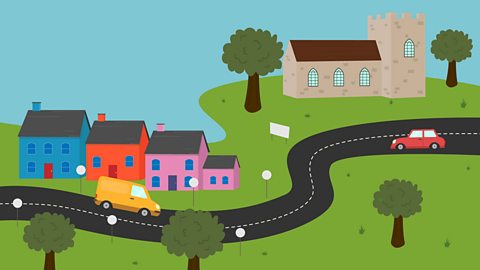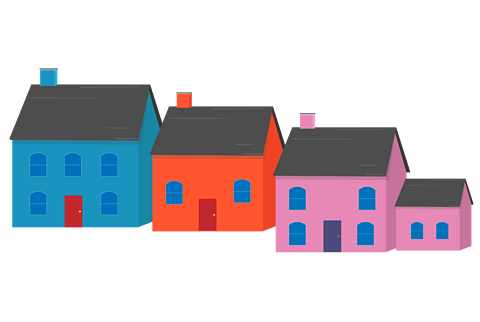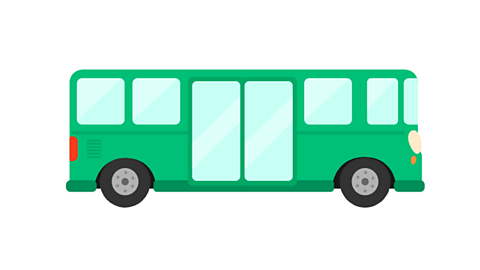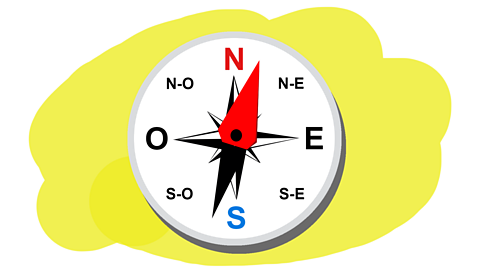When navigating any place, it is useful to know how to talk about different locations and types of transport.
Places around town
| Mandarin | Pinyin | English |
|---|---|---|
| Sorry, something went wrongCheck your connection, refresh the page and try again. | jiā | home |
| Sorry, something went wrongCheck your connection, refresh the page and try again. | xué xiào | school |
| Sorry, something went wrongCheck your connection, refresh the page and try again. | chāo shì | supermarket |
| Sorry, something went wrongCheck your connection, refresh the page and try again. | diàn yǐng yuàn | cinema |
| Sorry, something went wrongCheck your connection, refresh the page and try again. | gōng yuán | park |
| Sorry, something went wrongCheck your connection, refresh the page and try again. | kā fēi diàn | café |
| Sorry, something went wrongCheck your connection, refresh the page and try again. | bó wù guǎn | museum |
| Sorry, something went wrongCheck your connection, refresh the page and try again. | cān tīng | restaurant |
'Where are you going?'

To ask where someone is going in Mandarin, you can say:
Sorry, something went wrongCheck your connection, refresh the page and try again. Nǐ qù nǎr (nǎ er)? - Where are you going?
For most places, you can answer in Mandarin with:
Sorry, something went wrongCheck your connection, refresh the page and try again. Wǒ qù - I’m going…
Example:
- Sorry, something went wrongCheck your connection, refresh the page and try again. Wǒ qù gōng yuán - I’m going to the park


Did you know?
The exception to the above rule in Mandarin is ‘home’, for which you would say:
Sorry, something went wrongCheck your connection, refresh the page and try again. Wǒ huí - I’m going back…
So if you want to say you are returning home in Mandarin you would say:
Sorry, something went wrongCheck your connection, refresh the page and try again. Wǒ huí jiā - I’m going back home
'How are you getting there?'
To ask how someone is going to get somewhere in Mandarin, you can say:
Sorry, something went wrongCheck your connection, refresh the page and try again. Nǐ zěn me qù? - How are you getting there?
There are three ways to respond to this question in Mandarin:
Sorry, something went wrongCheck your connection, refresh the page and try again. Wǒ zuò - I take, for vehicles you sit in, eg the bus or a taxi
Sorry, something went wrongCheck your connection, refresh the page and try again. Wǒ qí - I ride, for vehicles you sit on or across, eg a bike
Sorry, something went wrongCheck your connection, refresh the page and try again. Wǒ zǒu zhe qù - I walk there
| Mandarin | Pinyin | English |
|---|---|---|
| Sorry, something went wrongCheck your connection, refresh the page and try again. | chū zū chē | taxi |
| Sorry, something went wrongCheck your connection, refresh the page and try again. | gōng jiāo chē | bus |
| Sorry, something went wrongCheck your connection, refresh the page and try again. | huǒ chē | train |
| Sorry, something went wrongCheck your connection, refresh the page and try again. | zì xíng chē | bike |
| Sorry, something went wrongCheck your connection, refresh the page and try again. | qì chē | car |
For example, if you are going to get the bus, in Mandarin you would say:
Sorry, something went wrongCheck your connection, refresh the page and try again. Wǒ zuò gōng jiāo chē - I take the bus

Did you know?
Each mode of transport in Mandarin shares the final character Sorry, something went wrongCheck your connection, refresh the page and try again. chē (vehicle).
The Mandarin characters before this generally describe the vehicle in question, eg:
Sorry, something went wrongCheck your connection, refresh the page and try again. zì (self) Sorry, something went wrongCheck your connection, refresh the page and try again. xíng (do or travel) Sorry, something went wrongCheck your connection, refresh the page and try again. chē (vehicle) - bike
Sorry, something went wrongCheck your connection, refresh the page and try again. gōng jiāo (short for public transport) Sorry, something went wrongCheck your connection, refresh the page and try again. chē (vehicle) - bus

Points of the compass

Knowing the points of the compass can help you understand the names of some places and give you an idea of where they might be.
| Manarin | Pinyin | English |
|---|---|---|
| Sorry, something went wrongCheck your connection, refresh the page and try again. | běi | North |
| Sorry, something went wrongCheck your connection, refresh the page and try again. | nán | South |
| Sorry, something went wrongCheck your connection, refresh the page and try again. | dōng | East |
| Sorry, something went wrongCheck your connection, refresh the page and try again. | xī | West |

Example cities:
Beijing – means 'North Capital'
Nanjing – means 'South Capital'
Dongjing – means 'East Capital' (Tokyo)
Xi’an – means 'Western Peace'
More on Talking topics
Find out more by working through a topic
- count15 of 16

- count16 of 16

- count1 of 16

- count2 of 16
